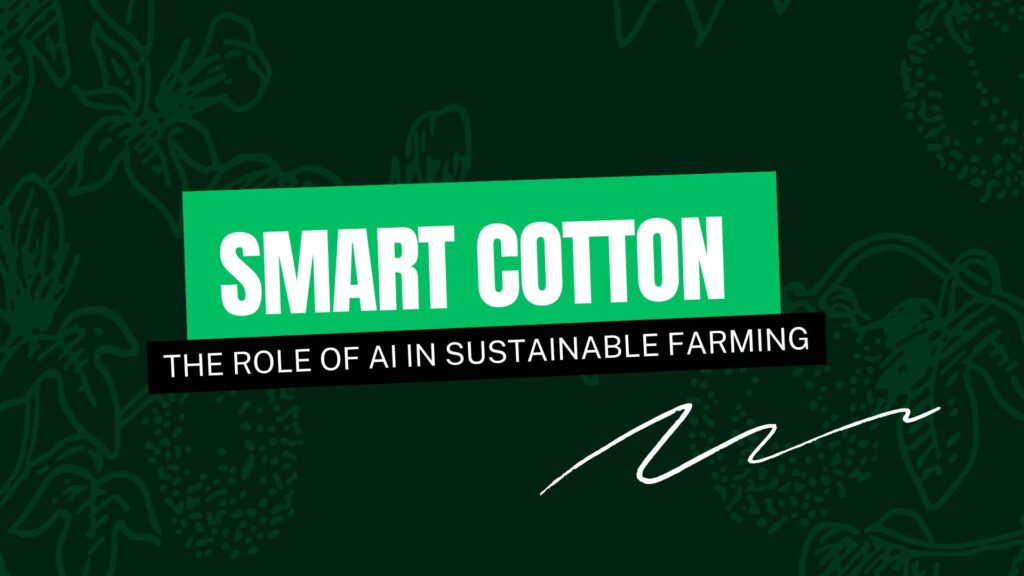Introduction
In recent years, the intersection of agriculture and technology has ushered in a new era of farming, where sustainability meets innovation. One of the most transformative technologies in this space is Artificial Intelligence (AI). As the world continues to grapple with the challenges of climate change, population growth, and resource depletion, AI is emerging as a vital tool in fostering sustainable farming practices. This is especially true in the cotton industry, where AI plays a crucial role in cotton spinning and cotton yarn production
AI encompasses a variety of technologies that enable machines to carry out tasks that would typically require human intelligence. In agriculture, this includes data analysis, machine learning, and predictive modeling, all of which can significantly enhance farming practices. As a result, AI-driven solutions offer farmers new ways to increase efficiency and sustainability, from crop monitoring to resource management
Precision Agriculture: A Game Changer
One of the most promising applications of AI in sustainable farming is precision agriculture. By utilizing AI-powered sensors, drones, and satellite imagery, farmers can gather real-time data on soil health, moisture levels, and crop health. This data allows for targeted interventions, such as applying fertilizers or pesticides only where needed, thereby minimizing waste and reducing environmental impact
Enhancing Resource Management
Water scarcity remains a critical challenge for farmers worldwide. Fortunately, AI can help optimize water usage through smart irrigation systems that analyze weather patterns, soil conditions, and plant needs. These systems determine the optimal amount of water required for crops, significantly reducing water waste
In the case of cotton farming, where water-intensive practices are common, AI-driven irrigation systems can lead to substantial water conservation. This not only preserves a vital resource but also enhances the resilience of cotton farms in the face of climate variability
Supply Chain Optimization
Beyond the farm, AI also plays a crucial role in optimizing the supply chain for cotton producers. By analyzing data on market trends, demand, and logistics, AI can help farmers make informed decisions about when to plant, harvest, and sell their crops. This level of insight ensures that cotton farmers can maximize profits while minimizing waste and inefficiencies in the supply chain
Moreover, AI assists in predicting market demand, enabling farmers to adjust their production strategies accordingly. This adaptability is vital for sustainable farming, as it allows for a more responsive approach to market fluctuations
Data-Driven Decision Making
One of the biggest strengths of AI is how quickly it can handle large amounts of data. Farmers can leverage AI analytics to make data-driven decisions that enhance productivity and sustainability. By better understanding trends and patterns in their farming practices, they can implement strategies that improve yields while conserving resources
1. Utilizing Predictive Analytics for Crop Management
Predictive analytics, for example, uses historical data to help farmers optimize planting and harvesting times. AI can forecast weather challenges, allowing timely adjustments to irrigation and thus improving cotton yields
2. Implementing Precision Nutrient Management
Similarly, AI analyzes soil health data to recommend precise fertilization, reducing both fertilizer use and runoff. This targeted approach not only enhances soil health but also improves crop resilience, thereby promoting sustainable cotton farming
3. Enhancing Pest and Disease Prediction
AI can also detect pests and diseases early by analyzing data from sensors and imagery. This proactive detection enables timely interventions, reducing chemical usage and supporting eco-friendly pest management practices
The Future of Sustainable Cotton Farming
As the cotton industry faces increasing pressure to adopt sustainable practices, AI will be integral in driving these changes. By embracing new technologies, cotton farmers can reduce their environmental footprint while simultaneously enhancing productivity. Indeed, the future of sustainable cotton farming lies in the synergy between traditional agricultural practices and innovative technologies like AI, alongside the adoption of best practices for efficient cotton spinning in textile manufacturing
In conclusion, AI is not just a tool for improving efficiency; it represents a paradigm shift in how we approach agriculture. For the cotton industry, embracing AI offers a clear path toward sustainability, ensuring that we can meet the needs of a growing population while protecting our planet. As we move forward, Smart Cotton is committed to harnessing the power of AI to promote sustainable practices that benefit farmers, consumers, and the environment alike, with a particular focus on advancing cotton spinning techniques

